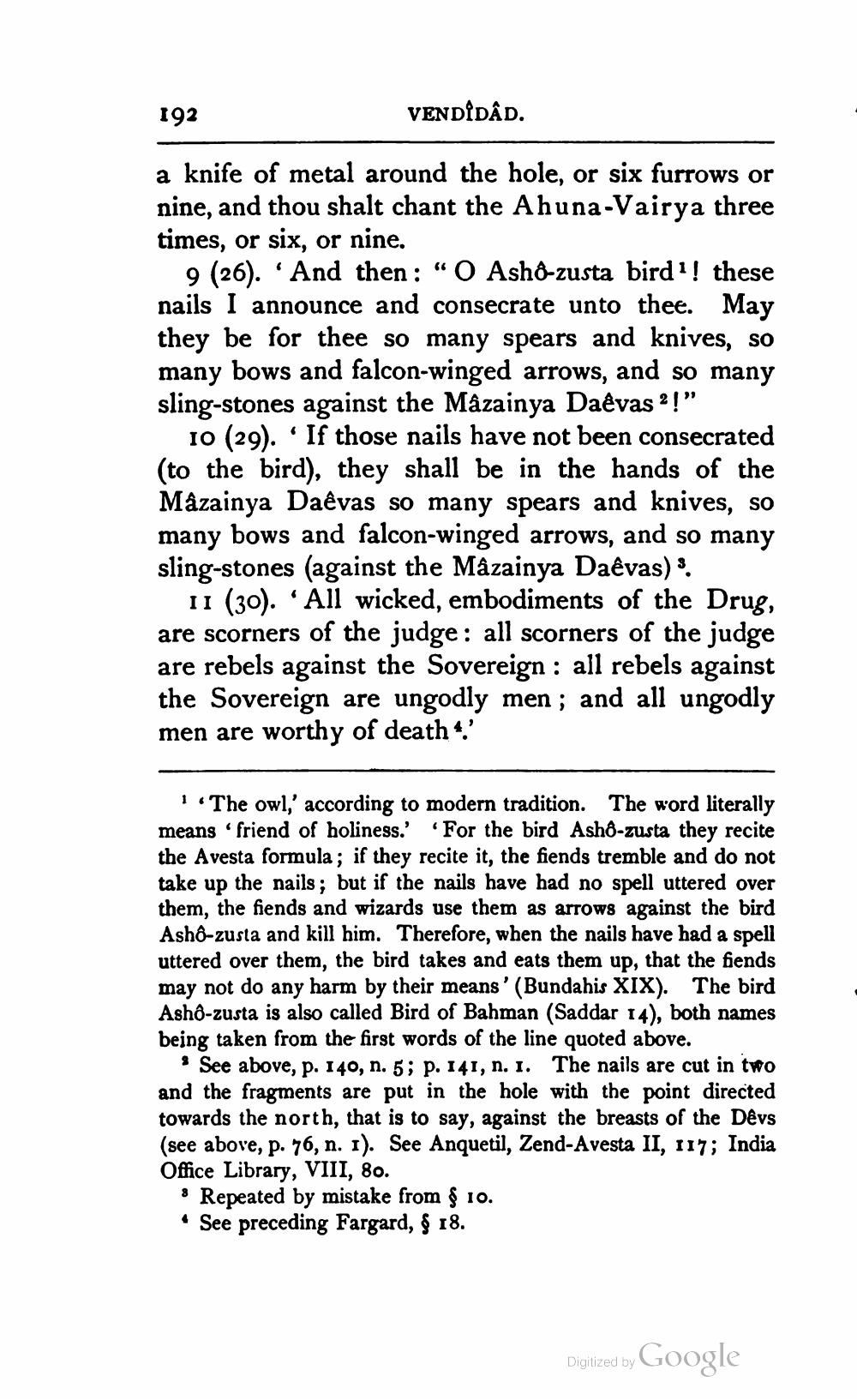________________
VENDIDAD.
a knife of metal around the hole, or six furrows or nine, and thou shalt chant the Ahuna-Vairya three times, or six, or nine.
9 (26). And then: "O Ashô-zusta bird1! these nails I announce and consecrate unto thee. May they be for thee so many spears and knives, so many bows and falcon-winged arrows, and so many sling-stones against the Mâzainya Daêvas 2!"
192
"
10 (29). If those nails have not been consecrated (to the bird), they shall be in the hands of the Mâzainya Daêvas so many spears and knives, so many bows and falcon-winged arrows, and so many sling-stones (against the Mâzainya Daêvas) 3.
II (30). All wicked, embodiments of the Drug, are scorners of the judge: all scorners of the judge are rebels against the Sovereign: all rebels against the Sovereign are ungodly men; and all ungodly men are worthy of death'.'
The owl,' according to modern tradition. The word literally means 'friend of holiness.' 'For the bird Ashô-zusta they recite the Avesta formula; if they recite it, the fiends tremble and do not take up the nails; but if the nails have had no spell uttered over them, the fiends and wizards use them as arrows against the bird Ashô-zusta and kill him. Therefore, when the nails have had a spell uttered over them, the bird takes and eats them up, that the fiends may not do any harm by their means' (Bundahis XIX). The bird Ashô-zusta is also called Bird of Bahman (Saddar 14), both names being taken from the first words of the line quoted above.
See above, p. 140, n. 5; p. 141, n. I. The nails are cut in two and the fragments are put in the hole with the point directed towards the north, that is to say, against the breasts of the Dêvs (see above, p. 76, n. 1). See Anquetil, Zend-Avesta II, 117; India Office Library, VIII, 80.
8
Repeated by mistake from § 10.
• See preceding Fargard, § 18.
Digitized by
Google




